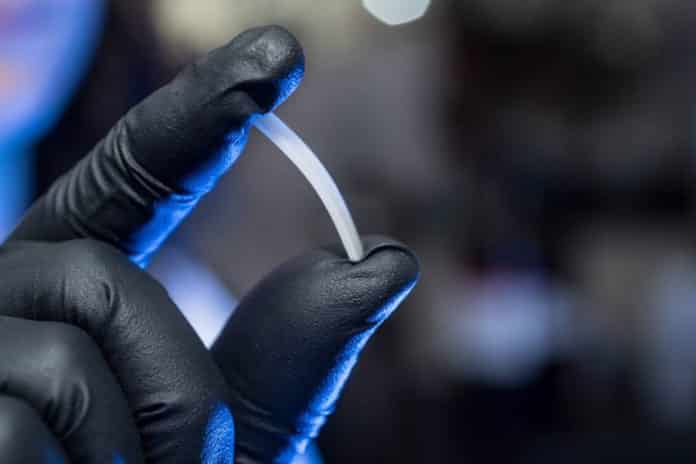Scientists Come Up with “Infinitely” Recyclable Plastic Polymer
The development of chemically recyclable polymers offers a solution to the end-of-use issue of polymeric materials and provides a closed-loop approach toward a circular materials economy.
However, polymers that can be easily and selectively depolymerized back to monomers typically require low-temperature polymerization methods and also lack physical properties and mechanical strengths required for practical uses.
Now, chemists at the Colorado State University have developed what they call an “infinitely” recyclable new material, and could, one day, provide a sustainable alternative to plastics.
The material created by Professor Eugene Chen has many of the same characteristics of everyday plastics, including strength, durability and heat resistance. However, unlike conventional plastics it can be converted back to the molecules that form its building blocks with ease.
The team’s new material is relatively environmentally-friendly to manufacture, too. Its monomers can be polymerized at room temperature in a matter of minutes, with tiny amounts of a catalyst and without the use of solvents.
The new material builds on the team’s previous work into chemically-recyclable polymers, but the current iteration has a significantly improved recipe.
The older version was reportedly soft, had low heat resistance and molecular weight and needed
to be manufactured under extremely cold conditions – all issues which have reportedly been improved this time around.Publishing its findings in the journal Science, the team outlined how the newly discovered polymer has a structure that allows the monomers to be “re-polymerised” over and over in an environmentally friendly way, without the use of solvents. With just a catalyst, and a few minutes of reaction time at room temperature, the material becomes a feasible substitute to conventional plastics – that is, if it can be scaled up.
What’s next for the team? Chen emphasized this polymer technology has solely been demonstrated at the academic laboratory scale, and more research is necessary to polish the patent-pending processes of monomer and polymer production. The chemists do have a seed grant from CSU Ventures, and Chen said, “It would be our dream to see this chemically recyclable polymer technology materialize in the marketplace.”






























